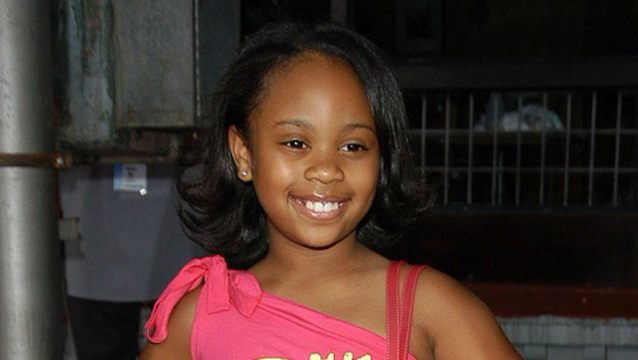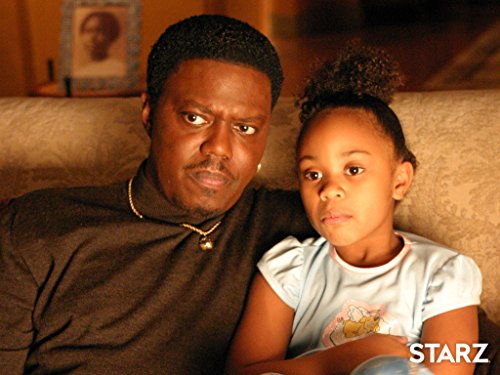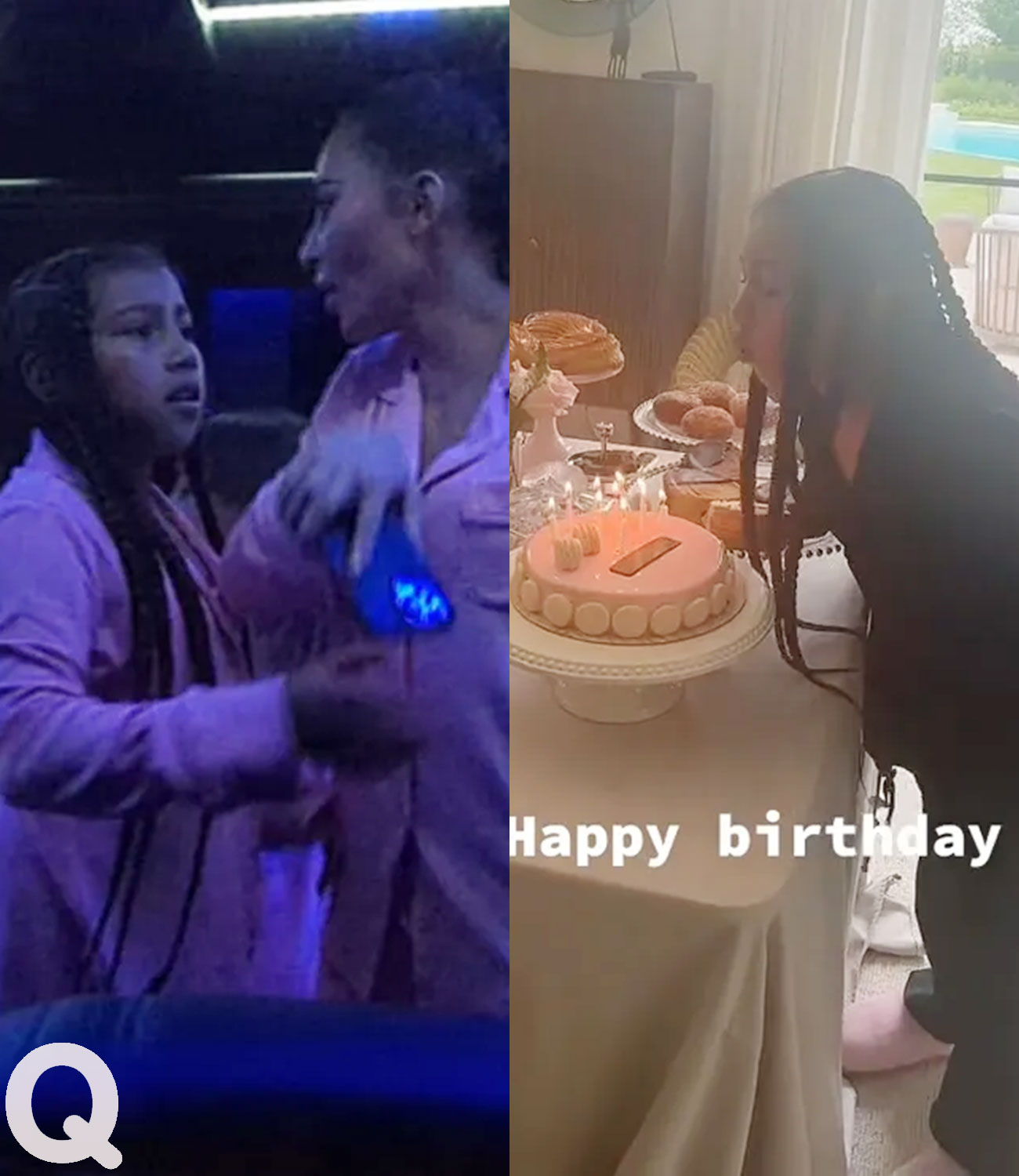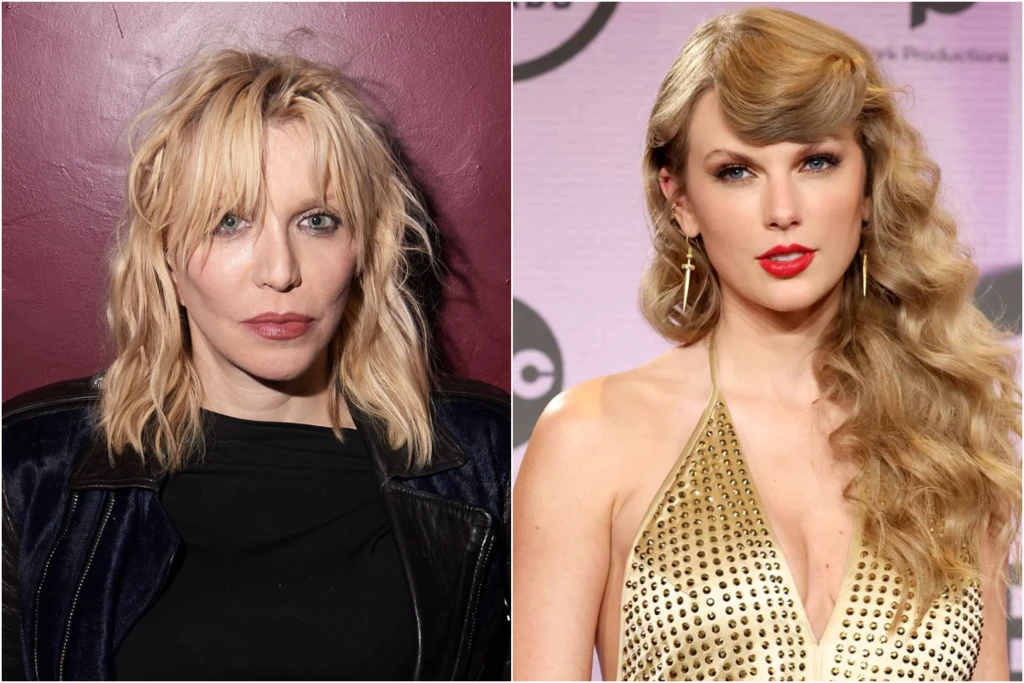The Evolution of Child Stars: Camille Winbush and D.D. Davis from The Bernie Mac Show Join OnlyFans
In the realm of television, few shows have left as lasting an impression as *The Bernie Mac Show*. The series, which aired from 2001 to 2006, featured the late comedian Bernie Mac as he navigated the challenges of raising his sister’s three children. Among these children were Camille Winbush, who played Vanessa, and D.D. Davis, who portrayed the adorable baby girl. Fast forward to today, and both actresses have grown up and made headlines for their recent decision to join OnlyFans, a platform that has become synonymous with adult content.
Camille Winbush, now 33, and D.D. Davis, 26, have both embraced this new chapter in their lives, sparking a mix of reactions from fans and the public alike. D.D. Davis recently announced her presence on OnlyFans, sharing a link on her social media with a playful caption that hinted at her readiness to engage with her audience. The accompanying image showed her receiving roses, a subtle nod to the romantic and intimate nature of the platform. However, both actresses have made it clear that their content will not include nudity, focusing instead on “sexy pictures” that allow them to express their adult selves without crossing certain boundaries.

The decision to join OnlyFans has not come without controversy. Many fans of *The Bernie Mac Show* have expressed their dismay, claiming that the actresses are tarnishing the legacy of the beloved show. Some have even gone so far as to suggest that Bernie Mac would be “turning over in his grave” at the thought of his on-screen children engaging in adult content. However, both Winbush and Davis have defended their choices, emphasizing their autonomy as adults and their right to make decisions that align with their personal and financial goals.
Camille Winbush, in particular, has been vocal about the backlash. In a recent statement, she addressed the “trolls” who have criticized her and D.D. for their choices. She pointed out that she has never been arrested, has no children out of wedlock, and pays her taxes, asserting that if the most scandalous thing people can say about her is that she took some sexy pictures, then she is doing just fine. Winbush’s confidence in her choices reflects a broader trend among former child stars who are redefining their careers in a landscape that often overlooks them.
The reality is that the entertainment industry can be unforgiving, especially for women of color. Many child actors struggle to find roles as they transition into adulthood, and the opportunities that once seemed abundant can quickly dwindle. For Winbush and Davis, OnlyFans represents a viable alternative to traditional acting roles, allowing them to take control of their careers and financial futures. Winbush has reportedly made a couple of million dollars in less than two years on the platform, a testament to the potential for success in this new arena.
However, the decision to join OnlyFans raises questions about the societal expectations placed on former child stars. Many fans still view Winbush and Davis as the children they once were, leading to a disconnect between their current lives and the nostalgic memories of their childhood roles. This phenomenon is not unique to them; it is a common struggle for many child actors who find it challenging to break free from the identities they established in their youth.
D.D. Davis has also weighed in on the criticism, asking her followers why they are so upset about her choices. This question highlights a significant aspect of the conversation: the discomfort some people feel when child stars transition into adulthood and make choices that challenge societal norms. The reality is that both women are now adults, capable of making their own decisions about their bodies and careers.

In conclusion, the journey of Camille Winbush and D.D. Davis from *The Bernie Mac Show* to OnlyFans is a reflection of the evolving landscape of entertainment and the complexities of growing up in the public eye. While some may view their choices as controversial, it is essential to recognize their autonomy and the financial opportunities that platforms like OnlyFans provide. As society continues to grapple with the implications of adult content and the expectations placed on former child stars, Winbush and Davis are carving out their paths, proving that they are more than just the characters they once portrayed.
### The Struggles of Auditioning: A Closer Look at Winbush and Davis
In the fast-paced world of entertainment, the pressure to perform can be overwhelming, especially for actors navigating the audition process. Recently, actress Winbush took to Twitter to express her frustrations with the industry, highlighting the unrealistic expectations placed on performers. Her tweet read: “casting directors be like hi we know it’s 11 p.m but memorize 12 pages of sides, find someone to read with you, last minute film edit and upload your audition by 6 a.m tomorrow, no exceptions. You wonder why I hate auditioning. Villain era.” This candid statement resonates with many in the industry, shedding light on the often grueling and thankless nature of auditioning.
Winbush’s tweet encapsulates a common sentiment among actors: the lack of respect for their time and effort. The expectation to deliver high-quality performances on such short notice can be demoralizing, leading many to question their passion for the craft. Winbush’s frustration is not just about the late-night demands; it reflects a broader issue of how casting directors and the industry at large often overlook the human element of the audition process.
To better understand Winbush’s career trajectory and the challenges she faces, it’s essential to look at her body of work. Winbush has been a consistent presence in the entertainment industry since her early days on “The Bernie Mac Show.” Her IMDb profile reveals a steady stream of projects, including “Holiday Hideaway” (2022), “Fracture” (2021), and “Muna” (2019). Despite her consistent work, Winbush has openly stated that she does not enjoy the auditioning process, which raises questions about the sustainability of her career in an industry that often prioritizes auditions over established talent.

In contrast, actress Dede Davis has had a different experience in the entertainment industry. With only four acting credits to her name, Davis’s career has seen significant gaps, including a 13-year hiatus between her appearance on “ER” in 2007 and her role in “Two Degrees” in 2020. This disparity in career trajectories highlights the varying experiences of actors in Hollywood. While Winbush has managed to maintain a steady presence, Davis’s sporadic work raises questions about the challenges of sustaining a career in an industry that can be unforgiving.
The differences in their experiences also prompt a discussion about the broader implications of the audition process. For many actors, the pressure to constantly audition can lead to burnout and disillusionment. The industry’s focus on new talent often overshadows the hard work and dedication of seasoned actors like Winbush, who have proven their abilities time and again. This can create a toxic environment where actors feel undervalued and overworked, leading to a cycle of frustration and dissatisfaction.
Moreover, the rise of platforms like OnlyFans has opened up new avenues for performers seeking financial stability outside traditional acting roles. While it’s unclear if Winbush or Davis have considered this option, the existence of such platforms reflects a growing trend among actors who feel compelled to explore alternative income sources due to the unpredictable nature of the entertainment industry. The pressure to succeed can push actors to seek out opportunities that may not align with their artistic goals but provide necessary financial support.
As we reflect on Winbush’s candid remarks and the contrasting career paths of both actresses, it’s essential to foster a conversation about the treatment of actors in the industry. The audition process should be a space that encourages creativity and showcases talent, rather than a source of stress and anxiety. By advocating for more respectful practices and recognizing the hard work that goes into each audition, the industry can create a healthier environment for all performers.
In conclusion, Winbush’s tweet serves as a powerful reminder of the challenges faced by actors in the entertainment industry. Her frustrations highlight the need for change in how auditions are conducted and how actors are treated. As audiences, we must support and uplift the voices of performers, recognizing their dedication and the sacrifices they make in pursuit of their craft. The conversation surrounding auditioning and the treatment of actors is crucial for fostering a more equitable and respectful industry.











